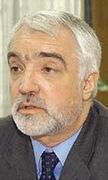- Serbia
Get to know Serbia
- Citizens
Culture and science
Health services
Pension and disability insurance
- Business
Employment
Economy
- Media
- Government
- Contact
Keep in touch
Contact form
Back
Keepin touch
Whether you have a question, comment, suggestion or any problem in the purview of the government, send us your message and we will try to respond as soon as possible. If your problem is not in our purview, we will forward your message to the relevant institution.
Q:
A:
Serbia safe for investment, Deputy Prime Minister Labus says
Belgrade / Vienna,
9 July 2004
Serbia has restarted dynamic legislative reforms and has reduced its investment risk, Serbian Deputy Prime Minister Miroljub Labus said in Vienna today.
Attending a Stability Pact for South Eastern Europe’s ministerial conference in Vienna, Labus said that the new government has passed 37 laws since it took office in March this year, simplified company registration procedure and abolished financial transaction tax. A recent debt rescheduling agreement with the London Club of commercial creditors has also allowed the country to access the world capital market, he added.
Addressing the conference, Labus said that the Serbian parliament is currently debating a package of economic reform-related bills, including bills on bankruptcy, energy and games of chance. The legislative activity is part of the government’s efforts to keep pace with other European Union hopefuls and not to let economic recovery lose momentum, the Deputy Prime Minister explained.
Noting that Serbia attracted over $1.3 billion in foreign investment in 2003, Labus said that the country will raise less privatisation revenues this year, but will seek to achieve a balance between greenfield investment and sell-off receipts.
He went on to say that the government is determined to press ahead with reforms, adding that Serbia’s industrial production in the first five months of the year rose 7.5 percent against the same period of 2003.
Serbia has achieved macroeconomic stability and is now due to wrap up the industrial sector restructuring, the Deputy Prime Minister said, noting that technology modernisation and further economic growth call for attracting fresh investment.
Addressing the conference, Labus said that the Serbian parliament is currently debating a package of economic reform-related bills, including bills on bankruptcy, energy and games of chance. The legislative activity is part of the government’s efforts to keep pace with other European Union hopefuls and not to let economic recovery lose momentum, the Deputy Prime Minister explained.
Noting that Serbia attracted over $1.3 billion in foreign investment in 2003, Labus said that the country will raise less privatisation revenues this year, but will seek to achieve a balance between greenfield investment and sell-off receipts.
He went on to say that the government is determined to press ahead with reforms, adding that Serbia’s industrial production in the first five months of the year rose 7.5 percent against the same period of 2003.
Serbia has achieved macroeconomic stability and is now due to wrap up the industrial sector restructuring, the Deputy Prime Minister said, noting that technology modernisation and further economic growth call for attracting fresh investment.
-
 Belgrade, 18 November 2025
Belgrade, 18 November 2025Serbia remains committed to open dialogue, cooperation with OSCE
-
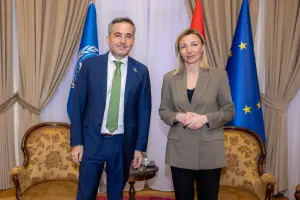 Belgrade, 18 November 2025
Belgrade, 18 November 2025Cooperation with WHO to strengthen protection for victims of violence
-
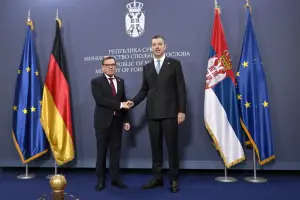 Belgrade, 18 November 2025
Belgrade, 18 November 2025Germany ready to accompany Serbia on its path towards EU
-
 Belgrade, 16 November 2025
Belgrade, 16 November 2025Solution for NIS must be found by next week
-
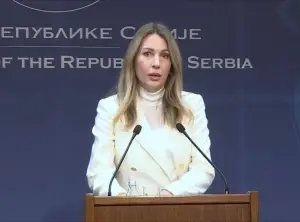 Belgrade, 15 November 2025
Belgrade, 15 November 2025United States sends request for Russian ownership to exit NIS
-
 Belgrade, 13 November 2025
Belgrade, 13 November 2025Serbia continues to be reliable partner of EU
-
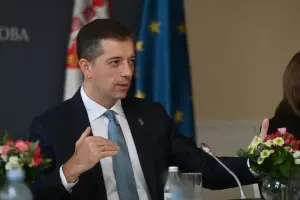 Belgrade, 13 November 2025
Belgrade, 13 November 2025European integration, preserving peace, stability priorities for Serbia
-
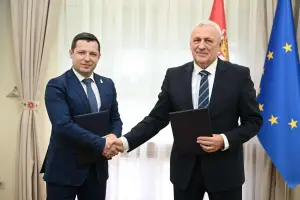 Belgrade, 13 November 2025
Belgrade, 13 November 2025Cooperation agreement signed for preparation of Specialised Expo 2027
-
 Belgrade/London, 12 November 2025
Belgrade/London, 12 November 2025Exchange of experiences with UK in field of women’s economic empowerment
-
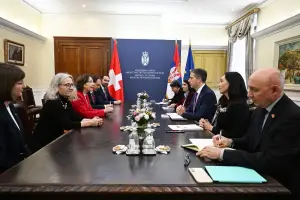 Belgrade, 12 November 2025
Belgrade, 12 November 2025Strengthening cooperation, partnership between Serbia, Switzerland

